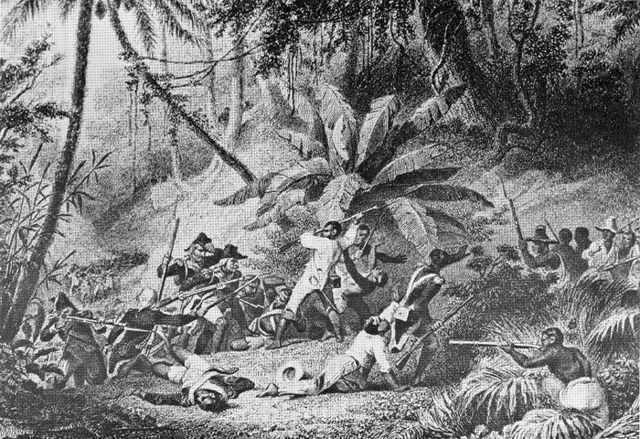What began as a massive rebellion against slavery and colonization turned out to be a decade-long war with the onset of the Haitian Revolution. Led by the likes of Toussaint L’Ouverture and Jean-Jacques Dessalines, the Haitian Revolution became one of the largest and most successful rebellions of enslaved individuals.
Prior to the revolution, the land was known as St. Domingue and served as a French Colony. The colony quickly expanded and became successful due to the booming sugar and coffee industries. The majority of St. Domingue’s population consisted of enslaved Africans and the remaining population was free, of mixed-race or white settlers.
Due to the makeup of the population, there was an emergence of five distinct groups with interests in the colony. The groups were white planters, petit blancs (artisans, shopkeepers, etc.), enslaved Africans, free individuals and runaways. However, it would be the enslaved who seized the opportunity for control over the colony first. Those enslaved in northern St. Domingue organized and planned a rebellion which began on August 22, 1791. They were inspired to take action based on the French Revolution that started just two years prior in 1789.
Toussaint L’Ouverture rose in the ranks as a leader of the revolution and aided the rebels in securing control over one-third of the colony. Nations such as Britain, Spain, The United States and France made attempts to shut down the revolution, but they were met with defeat. Both French and British troops retreated from the colony in 1798 following a string of losses to L’Ouverture and his troops. Additionally, L’Ouverture expanded the fight to the neighboring colony of Santo Domingo, abolished slavery and declared himself Governor-General for life over the entire island.
His reign was halted after French dictator Napoleon Bonaparte sent his brother-in-law to capture L’Ouverture. He remained a prisoner until his death in 1803, but that did not stop the revolution from continuing. In 1804, Jean-Jacques Dessalines, one of L’Ouverture’s top generals, proclaimed independence and renamed the nation Haiti after declaring himself emperor. France was the first to acknowledge the nation’s independence and it became the second nation in the Western Hemisphere to gain independence from European forces.


